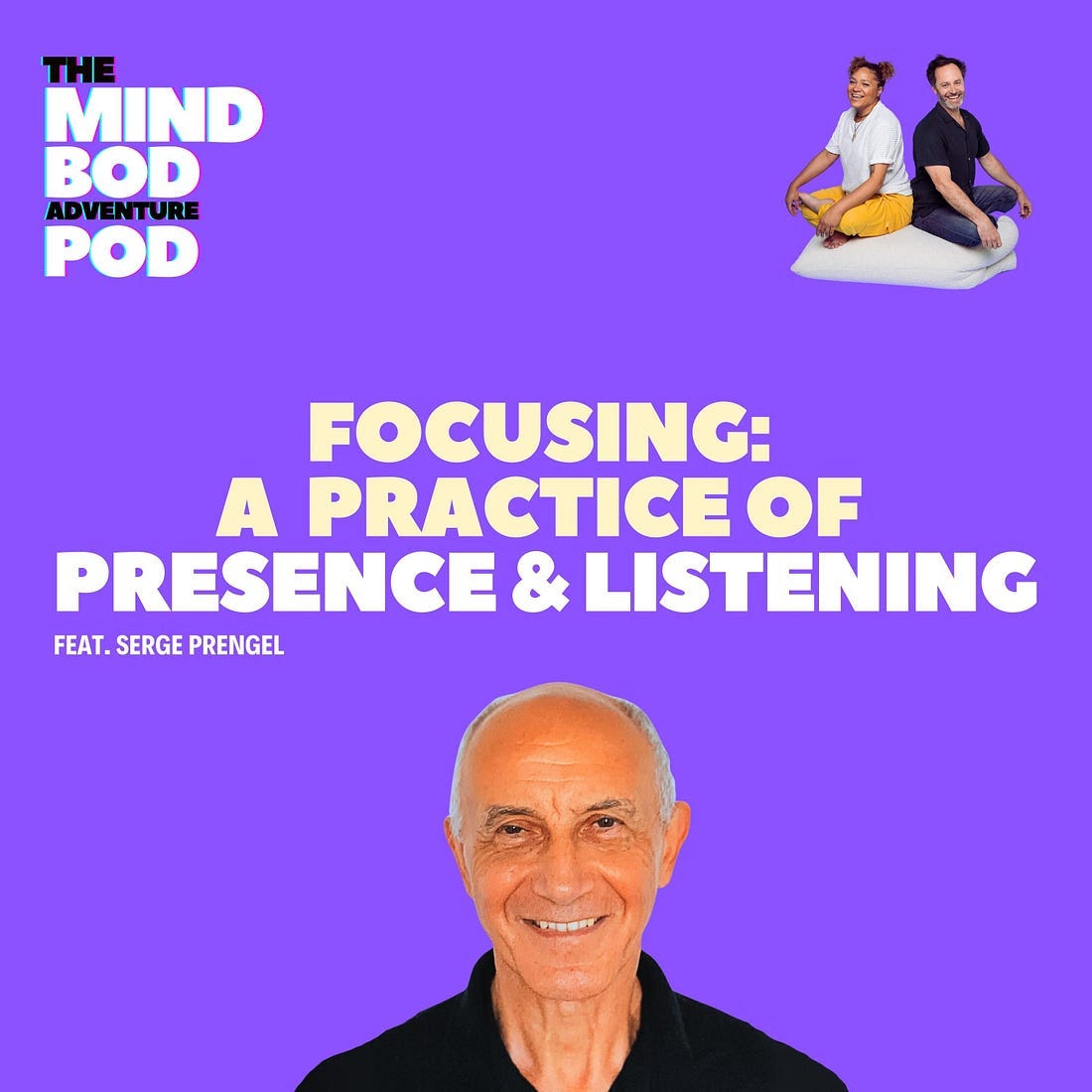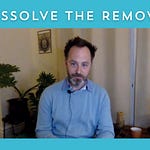Hey friends - I’m at a meditation retreat! At Spirit Rock, sinking into the zero for a week, in order to emerge refreshed, the best Dad ever, humming with compassionate presence. Or maybe it will be days of neurotic struggle and I’ll emerge shell-shocked and exhausted? You never know!
Subbing for me this week is my friend Toby Sola, a fine human being and also, it so happens, an excellent meditation teacher. Toby runs the Brightmind Meditation app, which takes its listeners on a highly structured, personalized meditation learning journey, and also links to personal coaching, in-person retreats and lots of other resources for the meditation-curious. Highly recommended!
Enjoy Toby's meditation, and I’ll see you all next week.
Jeff

Hey everyone, it’s an honor to be here! Jeff and I met years ago, and bonded over swearing profanely at Boston traffic on our way to a meditation retreat / research project : ) Let’s dive in.
My wife always yells at me when I use the brakes.
We have a standard transmission Honda Civic, and she insists I use the gears to slow the car down. If you’re not familiar, there are two ways to reduce a car’s speed: the brakes—which most people rely on, especially with automatic transmissions—or the gears. With a manual transmission, you can downshift gradually into lower gears, and the engine itself slows the car because the engine can’t spin as fast. You’ve probably heard trucks doing this. When big rigs descend hills or need to slow down, they often downshift instead of relying solely on their brakes, which would overheat from the intense friction required to stop all that mass.
The breath is like our own set of gears. When your mind and body are racing, slowing the breath acts like downshifting--the rest of your body has no choice but to follow suit. Just as a small gear box trumps the huge momentum of a heavy truck, slowing the breath can trump even the most intense anxiety spiral. It’s like there’s a mechanical connection between your breathing rate and the physiology of stress (increased heart rate, the release of cortisol, etc.) so that a relatively small change in breathing can have an outsized impact on the larger system. In today’s guided meditation, you’ll learn to intentionally slow your breathing, which can lead to a calm body and a quiet, focused mind.
As far as I know, this particular approach to the breath comes from Harada Roshi, a renowned Zen master and abbot of Sōgen-ji, a 300-year-old Rinzai Buddhist temple in Japan. Harada is considered a “master’s master”, with teachers from a variety of traditions traveling to train with him. Legend has it that when his own teacher died, Harada committed to practicing so intensely that he didn’t sleep for three years—spending every night, all night in meditation. Just imagine what that did to his nervous system! As far as I understand, the only way you can cultivate that much energy is to relax more than you ever thought possible.
If you visit Harada’s temple, you’d learn this breathing technique and how to maintain a strong, stable posture. Meditation there isn’t seen as a purely mental exercise—it’s something you do with your body. You sit this way. You breathe that way. With that lens, “mindfulness” starts to feel like a misnomer. A better word might be bodyfulness.
Time to downshift!
Toby
THIS WEEK ON THE MIND BOD ADVENTURE POD
Hey friends! So a couple weeks ago I wrote about Focusing. That is also the subject of this week's The Mind Bod Adventure Pod episode, with Serge Prengel. Serge is one of those rare people who seem to live from a deeper layer of presence. His work blends Focusing, Somatic Experiencing, Core Energetics, and Polyvagal Theory to support real, embodied change.















